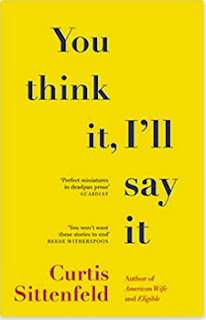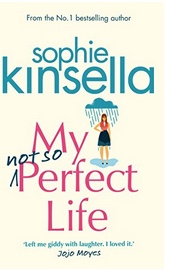I read five books in June.
The Private World of Georgette Heyer by Jane Aiken Hodge
I read a few GHs in my teens and then inexplicably she dropped off my radar until a couple of years ago when my enthusiasm was ignited by my friend Anne Stenhouse (no mean Regency writer herself); she kindly lent me this biography.
GH was extraordinary in that she seemed to despise her own writing and she never gave interviews or did signing sessions or author tours or anything required (pre-pandemic anyway) of big-name authors today. And she was a big name, with legions of fans, despite being so private and elusive; her forthcoming novels were serialised in Woman & Home for which she received £10,000 in the middle of the last century.
It was so interesting to read of her attention to detail and accuracy – she kept dozens of notebooks with historical minutiae and also invented her own slang words, just one of the things that make her writing so dazzling.
The Grand Sophy by Georgette Heyer
‘When Sophy is sent to stay with her London
relatives, she finds her cousins in quite the tangle. …
Fortunately, Sophy has arrived just in time to sort them all out – but Charles
is eager to rid his family of her meddlesome ways. Has the Grand Sophy finally
met her match?’
What do you think?
And now for something completely different:
The Guest List by Lucy Foley
Agatha Christie’s And Then There Were None meets Lord of the Flies at a wedding on a small island off the coast of Ireland. And the consequence was … murder and mayhem and revenge.
Your Blue-Eyed Boy by Helen Dunmore
Simone is in a very difficult situation. Formerly a lawyer in London who was able to take on badly paid cases close to her heart, she has now moved to a rural area to be a district judge – because her husband’s business is virtually insolvent and 75% of her salary will be going to pay debts and bank charges. He’s depressed (unsurprisingly) and they have two primary-school-age boys.
But the book opens with Simone in America twenty years earlier, in a relationship with an older man, a damaged Vietnam veteran – and as if she doesn’t have enough to worry about in the present day that relationship comes back to haunt her.
Helen Dunmore is (was, sadly) a wonderful writer (poet as well as novelist) and her descriptions are stunning. I loved this (the writing and the tension evoked) up until the end which – no spoilers – I felt a little disappointed by.
A Gentleman in Moscow by Amor Towles
This is a book lots of people seem to be talking about at the moment (and soon to be a TV series). In 1922 Count Alexander Rostov has been sentenced to indefinite house arrest by a Boshevik tribunal – or hotel arrest because he must spend the rest of his days in the Hotel Metropol, not in the grand suite he previously occupied but in an attic room.
But, the book blurb asks, can a life without luxury be the richest of all? How the Count passes his days (and months and years) makes for a delightful, if perhaps rather over-long, read.
NOTICE FOR EMAIL SUBSCRIBERS
Many thanks to those of you who opted to receive notifications of blog posts by email. Blogger is very unhelpfully discontinuing this service (‘in July’ so may already have done … ). To transfer to another email service involves signing up to Google Analytics which I have done but there is a password needed by Blogger that I cannot find. Online help forums shed no light (and it would appear I’m not the only one with the issue). If anyone can help please contact me via the comments.
Lovely email subscribers, I trust the situation will get resolved soon. (The list of names will remain after July.) In the meantime, perhaps you’ll be kind enough to check in with the blog every so often without a reminder.



















